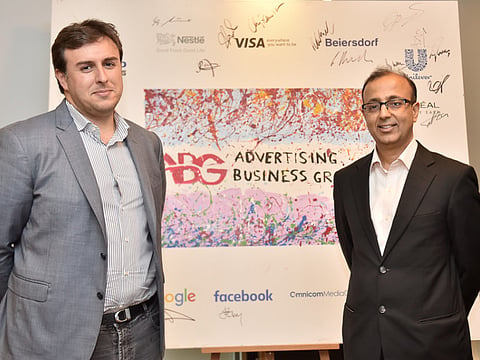Gulf’s social media influencers will no longer get a free ride
Powerful advertiser group ABG makes the call for greater transparency in monitoring claims

Dubai: Social media influencers in the region can no longer hide behind their “follower” numbers. They will need to convince brand owners and marketers that they can actually deliver on the follower numbers they claim if they are to be taken seriously.
The Advertising Business Group — entity with some of the region’s leading advertisers as members — will make sure they do.
“There is evidence of some bad practices in the industry such as fake followers, bots [and] fraud,” said Sanjiv Kakkar, Chair of ABG and Unilever’s top man in the region. “These practices erode trust in the industry, the trust of brands in influencers, and the trust of consumers in brands.
“It is our remit, then, to make sure that proper measures are in place to ensure transparency in this discipline. It could be a temporary blip, as we are all learning to work in this new area — but an important one to sort out quickly.”
ABG’s move comes just as social media influencers face more checks and balances from local authorities. All influencers — defined as those engaging in a commercial enterprise for third-party brands, etc — have to be licensed to operate in the UAE. At last count, it is estimated that more than 500 such licences have been issued.
Paid handsomely
Influencers were trending right through 2017 as brands used them as a less expensive way to get through to the regional consumer. Be it fashion or cooking, technology or travel, automotive or real estate, influencers were being roped in to put in a word for a brand. And some of the more “influential” ones were indeed getting paid handsomely by the post or a photograph.
But since the start of the year, there has been a visible slackening in such influencer-led campaigns. It could be that advertisers were starting to question the influence and reach these individuals were claiming.
That is why ABG now wants more clarity — preferably measured — on the follower numbers and the feedback they get for their campaigns.
“Influencers have built strong relationships with the public through social media,” said Kakkar. “As the industry body that is advocating for responsible and ethical advertising practices, we have to ensure that these relationships are authentic.”
There are ways to do it.
“The first is to look at global best practices for self-regulation and educate brands here on how they can self-regulate, such as by making them more aware of the use of dishonest practices and its impact,” said Kakkar. “And encouraging them to not engage with those influencers who use dishonest models.
“The second is to engage with governments in shaping policy. Our preference is for the former, because we have seen time and time again that we as advertisers are best able to react to the changing state of the industry and is the preferred model.
“We’re also engaging with publishers and influencer agencies on the need to put in place best practices. The more we promote transparency, the more we believe consumers will trust both brands and influencers.”
Self-regulation
Apart from the likes of Unilever and P & G, the ABG membership rolls also includes Google and Facebook. The year-old grouping currently has 60 members.
“We continue to promote the agenda of ABG focused around self-regulation and it’s resultant long-term benefits of driving consumer confidence and therefore growth to the industry,” said Alex Malouf, corporate communications head at P & G M.E. “The more members we have, the better we will be able to push for change that benefits every brand, publisher and agency based in the Gulf.
“The work with influencers has risen quite dramatically, specially in the GCC when compared to some of the other parts of the world. We didn’t feel the need to put a break on that as such, but did feel that we need to fast track the measures on transparency and accountability.”
Sign up for the Daily Briefing
Get the latest news and updates straight to your inbox

